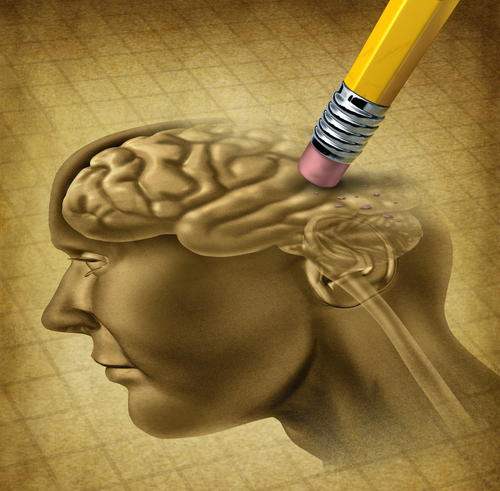For many years it was believed that human beings were not capable of growing new brain cells. We were told that we were born with whatever cells made up our gray matter and that when they died, that was that. This belief was created in large part because many individuals’ motor (movement) and cognitive (thought) functions declined as they aged.
What’s Really Going on in There?
It’s true that the vast majority of our brain cells are formed while we are in the womb. It is also true that certain parts of the brain continue to create new brain cells during infancy. But what happens after infancy? Does all neurogenesis (the processes of creating new brain cells) stop for good once we become toddlers?
This is what most scientists believed until the 1990s, when new studies determined there was ONE part of the brain that continued to create new brain cells throughout a person’s life.
Researchers at Rockefellers University in New York City conducted studies in which they injected marmoset monkeys with tracer chemicals that would show the researchers areas of the brain with slow-dividing mature brain cells and fast-dividing new ones. What the researchers found surprised them, to say the least.
The hippocampus, the area of the brain associated with memories, learning and emotions, continued to grow new brain cells throughout the monkeys’ life.
Further studies using carbon-14 dating confirmed that while cells in the hippocampus continually die, they are replaced by new cells, and quickly! In fact, it is only by the formation of these new cells that the hippocampus is able to maintain its central functions.
Now having said this, it did become evident to researchers that the rate and frequency by which these new cells were created did tend to decline with age. But that rate and frequency varied from subject to subject. In other words, how fast and how much your hippocampus creates new cells is really determined by YOU and the lifestyle choices you make.
With this in mind, let’s take a look at some of the things you can do to support the growth of new brain cells so you can keep learning, storing memories and processing emotions for years to come!
- Quercetin
You’ve heard that an apple a day keeps the doctor away. Well it turns out that an apple a day may keep dementia away.
Researchers from the University of Queensland and the German Center for Neurodegenerative Diseases discovered that quercetin promotes new cell growth in the hippocampus region of the brain.
The researchers chose to study apples, which have quercetin, a powerful flavonoid (an antioxidant) in the peel. At the end of the study the researchers concluded that the quercetin from the peel and another active compound from the apple flesh, Dihydroxybenzoic acid (DHBA), “demonstrated the ability to increase precursor cell proliferation and neurogenesis.”
- Exercise
Exercise has also been shown to promote the growth of new brain cells within the hippocampus. One study from the University of British Columbia discovered that aerobic exercise could increase the volume of the hippocampus in older women who had mild cognitive impairment.
Nearly 100 women between the ages of 70 and 80 exercised twice a week for over 6 months. They were either assigned resistance training, balance training or aerobic training. At the end of the study, all exercise had shown to improve hippocampus volume, but the women who were assigned the aerobic exercises saw the most significant improvements.
- Eat Fatty Fish
Astaxanthin is an incredibly powerful antioxidant that is responsible for the pink or red color in salmon, trout, lobster and other seafood. It is so powerful it has been called the “king of antioxidants.” It turns out this antioxidant can protect your brain for Alzheimer’s disease.
Another nutrient found in fatty fish, omega-3 fatty acids, are crucial for the health of your cell membranes. They also keep inflammation down in your body – including in your brain. In recent years, researchers have found a link between low levels of omega-3 and memory loss and Alzheimer’s disease.
It’s important to focus on eating wild-caught Alaskan salmon or take a safe and pure fish oil supplement.
Conclusion
There were nearly 5.8 million people diagnosed with Alzheimer’s disease in the U.S. in 2020 alone. By 2050, it is projected 13.8 million will have Alzheimer’s disease. This data tells an important fact: it’s more important than ever to protect the health of your brain as you age.
Follow these tips and help support the creation of new brain cells in your hippocampus.
If you’d like to learn even more powerful strategies on how you can protect your brain as it ages, then watch the following video. In it you’ll meet one doctor who is completely reversing Alzheimer’s disease in his patients, giving them back their memories and quality of life!
 Validating...
Validating... 





1 Comment